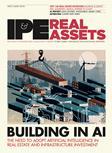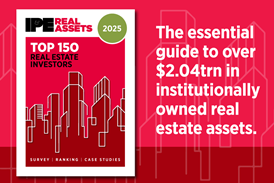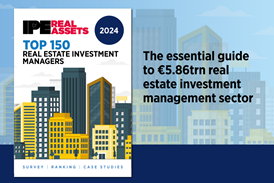European real estate association INREV took advantage of its fifth North American conference, in New York City, to familiarise investors with the ins and outs of investing on the other side of the Atlantic.
While geopolitical uncertainties were impossible to ignore, speakers focused on familiar themes to demystify overseas markets, in line with the meeting’s title, Europe on your Doorstep.
In the opening session, Alexis Crow, US advisory lead for the geopolitical investing team at PwC, contrasted the “tangible and real sense of business optimism in the US” with the “pernicious uncertainty” in Europe surrounding Brexit, and “grave situation unfolding in the UK macroeconomically”. That North American optimism, she admitted, was despite the uncertainties and instability of the Trump presidency and insecurity relating to North Korea.
When polled, the delegates – two thirds of whom were North American – said “frothy pricing” was more of a threat to real estate than geopolitical uncertainty.
“Brexit damaged the British economy, but it didn’t damage the European economy,” Crow noted, pointing to sector-specific opportunities in tourism and ESG and green-focused investing.
Her positive outlook on Europe was shared by conference delegates. When asked how they perceived investing in Europe, two-thirds said they saw increasing opportunities there, relatively undaunted by currency concerns or the complexity of doing business overseas.
Two North American institutional investors showed they were taking a pragmatic approach when it came it to European real estate in the context of Brexit.
Lisa Lafave, senior portfolio manager at the Healthcare of Ontario Pension Plan (HOOPP), said the Canadian pension fund was a long-term investor and was “ready to ride the wave”, although it had have already seen an impact on leasing in its portfolio.
“We are trying to balance our European portfolio,” she said. “There was a comfort level with the UK, but now we are trying to move into other parts of Europe.”
Alan Snoddy, managing director of the US-based Church Pension Fund was more bold. “Brexit is a positive,” he said.
“It was like a marriage of two incompatible partners, and now there’s a divorce. There will be some short-term psychological and financial pain,” he said. “But the situation will resolve.”
The Church Pension Fund pursues a sometimes contrarian approach in Europe, and has investments in Turkey and Russia. Snoddy said the fund was allocating new money to Spain, a country where high unemployment and economic difficulties was putting off many investors.
Both Lafave and Snoddy agreed that neither institution was looking at Europe for growth. “I don’t think we’re banking on any dramatic growth coming out of Europe – or the US for that matter,” said Snoddy.
INREV polled delegates on where they would invest if they had $1bn to deploy in European real estate today – before and after presentations on individual markets.
In the second poll, there was a notable shift in favour of Nordic markets and, in particular, the UK and Ireland.
The second poll was conducted after presentations from speakers that included Johan Bergman, chief executive of Nordic-focused fund manager NIAM, and Peter Hayes, head of global research at .
Hayes’ presentation pointed to the opportunities inherent in the disruption being created by Brexit.
Throughout the conference, speakers advised attendees to focus on cities, rather than countries, when looking at opportunities in Europe.
Jim Clayton, head of investment strategy and analytics, Baring Real Estate Advisors, was the first to sound this note, and he pointed to opportunities around revitalisation of Europe’s “urban core”.
“You know what we love about European cities? There’s relatively little modern office stock,” he said.
Clayton noted that the US and Europe each represented 36% of the total global commercial real estate universe, but there were some dramatic differences – notably in retail. In the US the amount of real estate per capita is 20sqft, whereas it is three sqft in Europe.
Raymond Jacobs, managing director, Franklin Templeton Real Asset Advisors, stressed the importance of acknowledging that Europe is not monolithic and that it was important to drill down locally.











